#youth crisis
Text
i absolutely love teenagers. i told a group of them about my work and asked them what their demands for the united nations would be and they debated among themselves and told me to "tell them to make doner kebab three euros again". yeah man i'll ask
#no joke ive been citing this as a positivr example for youth engagement to anyone in the ministry who will listen#teens SHOULD be advocating for everyday problems they face like the cost of living crisis and not be#shouldered with the responsibility for the entire future#'teenagers are the future' they are also the fucking present. allowed to have ordinary problems like everyone else!!!#dont fucking burden them with your shortcomings! you figure it out!!!!
14K notes
·
View notes
Text








Characters who are so done with this shit. (Part1/?)
Kieta Hatsukoi
Semantic Error
Minato Shouji Coin Laundry
Love Mechanics
Behind Cut
History 2: Crossing The Line
About Youth
Kabe-Koji
My favorite bl-tropes collection, in no particular order.
#bl tropes#multi bl#multibl.edit#being a mood#I love my existential crisis boys#especially Kim Ki Jin - he is my spiritual animal in this scene#drinking wine out of the bottle with a straw#kieta hatsukoi#semantic error#minato shouji coin laundry#love mechanics#behind cut#history 2: crossing the line#about youth#kabe koji nekoyashiki kun desires to be recognized#bl drama#bl series#asianlgbtqdrama#myedit#beingthemood
1K notes
·
View notes
Text
Homelessness as Trauma: Transitioning Into Housing
Having housing after experiencing homelessness for over half of my life wasn’t healing for me (and most others too).
Homelessness is inherently traumatic in and of itself. Just the act of not having housing is traumatic. But before someone becomes homeless ever, we know that certain marginalized communities are more likely to become homeless, and that those marginalized communities are experiencing communal trauma AND the individual person is experiencing trauma. Additionally, whatever led to you becoming homeless was traumatic. And then you’re at significantly increased exposure to other traumas while unhoused (friends dying, police violence, systemic barriers, communal traumas, developing medical conditions, medical discrimination, etc).
Long-term homelessness is exponentially traumatizing.
When I lived in a youth homeless shelter for nearly 4 years, prior to, and after that I had been unhoused or in extremely unstable housing. Watching as other youth would become unhoused and then quickly gain housing, some in under a week, most in under a few months, I felt absolutely dispirited. As time went on, I only acquired more marginalization and thus faced more barriers. I felt like I would never have stable housing. It often still feels this way.
The staff at the shelter where I lived consistently said “We are not a crisis stabilization unit” in response to youth showing signs of trauma and crisis. Almost no concrete supportive services exist for people transitioning out of long-term homelessness. I stopped qualifying for most services after I stopped being legally homeless, even though my housing was even more unstable than the shelter was most of the time.
For a frame of reference, because I was never officially in foster care as a minor (even though I was homeless and on my own documented as a minor, had various legal guardians other than my parents, as well as dozens of child services calls and regular check-ins with caseworkers because of documented physical abuse and neglect all throughout my childhood, but I digress) I don't qualify for the services that foster youth get granted until they're 30, even if they only spent 1 night in foster care. Some of those services include free college, housing vouchers to pay for housing in full, guaranteed Medicaid coverage, additional food stamps, and more. I have several friends who have used these programs and are thriving! I'm glad they exist for people in need-- they should also be expanded to include homeless youth.
So when I moved into my first apartment, on my own, at age 19, I was genuinely more terrified than at any time while I had ever been homeless. I slept with my backpack as a pillow and my jacket as a blanket, despite having pillows and blankets to use. It was like a security blanket for me. I slept with my knife on my waistband like I always did, and I reluctantly put my boots within arm's reach instead of wearing them.
I didn't put anything into cabinets or closets or drawers for a very long time. I just kept living out of my backpack. I was afraid of leaving anything in my apartment-- usually leaving any possessions anywhere meant saying goodbye to them. I was afraid of being alone in my tiny studio apartment so I would have friends over every night.
There was times I wouldn't leave my apartment for days on end, especially when I started owning possessions that I had to leave behind and couldn't carry everything on my back anymore. I can't remember a time I owned enough possessions that I couldn't fit them all into a tote box and backpack. It was an entirely foreign experience.
People kept congratulating me and yet no one gave me any help with getting basic necessities for my apartment. Every pot and pan I own is scratched to shit and found free on the road, akin to all my mismatched dull knives and friend's hand-me-down towels. It was a pat on the back while I was still out there drowning.
People kept congratulating me and still my friends, my family, were on the streets dying. Acting like I should be proud to "overcome" while the system still hurts us all. My friends are still dying. Our whole community is grieving all the time. I feel guilty to just be alive.
That's not even touching the start of processing the trauma I experienced while unhoused. They say you don't start to process shit til you're safer and it hit like a tidal wave.
I had never felt like that before getting off the streets. And I wasn't and am still not in stable housing. I can't even imagine what stable housing would look like, let alone how tryna process that would be like. It is such a raw and vulnerable experience to come fresh out of homelessness and then be thrown into a world you've never known.
So many people think JUST housing is the answer when it simply is not. We need supportive services, we need community support, we need to be cared for and looked after. We need places to go for holidays and people to be our emergency contacts. We need financial help and support that money can't buy. We need real love, we need to be held by our community and uplifted to where we all can thrive.
#chronically couchbound#stories from the shelter#homelessness#homeless#unhoused#actually homeless#housing insecurity#housing#landlords#affordable housing#cost of living#housing crisis#houselessness#houseless#homelessness is trauma#long term homelessness#ptsd#trauma#cptsd#homeless youth#eviction#poverty#low income#chronic homelessness#chronically homeless#disabled and homeless#homeless trans youth#homeless statistics#homeless crisis#homeless shelter
69 notes
·
View notes
Text
I’ve been seeing a few viral posts like “You don’t have to move out of your parents’ house when you turn 18; multi-generational homes are good.” And I agree – multi-generational homes ARE good, and cultural stigma on living with one’s parents as an adult IS wrong! Personally, I’ve lived with my parents for most of my adult life, first by financial necessity, and later by choice. If you’re fortunate enough to have a good relationship with your parents, spending time with them can be great.
BUT.
While you don’t necessarily need to move out of your parents’ home when you’re 18, you DO need to start thinking of yourself as an adult and making your own choices, and your parents will need to respect that. If you and your parents can seamlessly make the transition to viewing you as an adult housemate rather than a child under their care, that’s great. Sometimes, though, even the most respectful parents will have a tendency to Meddle, and even the most self-assured young people will have a tendency to Revert to old roles and habits. If this is a problem, you may in fact need to get some physical distance to reinforce the psychological distance.
And even more importantly, every young adult deserves the living wage and affordable housing to live on their own, whether or not they ever choose to use it. I’ve been shouting into the wind for years that the “young adults are still children” narrative is an excuse to normalize the low wages and high costs of living faced by Millennials and Gen Z, and “Multi-generational homes are good” seems hardly better in this respect. At best, it’s tonally mismatched to the cultural and economic moment. At worst, it’s normalizing the conditions of abusive control of young people. Somewhere in between, it’s propaganda reframing being unable to afford housing as a wholesome family lifestyle.
In fact, I think the demographic this demographic is nominally targeted to – 18 year olds who are freely choosing between two options, having both the financial resources to live on their own, and supportive parents who would willingly share a safe and respectful multi-generational home – are a relatively small segment of the population.
“Multi-generational homes are good” does nothing for the 18 year old living with their controlling parents because they can’t afford to move out, let alone the 18 year old moving in with an abusive partner because it’s the only way xe can escape xyr even more abusive parents, or the 18 year old living on the streets because her parents kicked her out and she’s ineligible for any benefits because she’s assumed to be supported by her parents (who have no legal obligation towards her). And as always, young people most likely to be controlled, abused, rejected, or involuntarily “helped” (which is also abuse) by parents and family – queer young people, disabled young people, young people who’ve made different reproductive or philosophical or religious or life-path choices than their family approves of – are most harmed by having no economic options to live on their own.
So can we get universal housing, universal living wages, and universal healthcare and student aid for young people which doesn’t require the involvement of their families FIRST, and THEN, once everyone has the option of living on their own, remind them that multi-generational homes are also good as one option among many?
68 notes
·
View notes
Text
garak is the Go nuts show nuts (to a point) parent and bashir is the Judgmental look Well I wouldn't do that... parent. Keiko and Miles have a very similar dynamic. Molly and Iskra bond over it
#miles has a crisis when molly comes home from college with a TATTOO and SHORT HAIR (its literally chin length bro)#keikos like omg... we should get matching family tats...#meanwhile iskra getting home at 4 am after a night of wild capital partying on her school break#julian sitting in an ominous pool of overhead light in the otherwise dark kitchen. waiting for her.#but garaks like ah! youth. at her age I was killing people. let her dance. theres not been enough dancing on cardassia these days#molly and iskra are like distant cousinly friends but i think when idan goes to the academy he becomes baby brother 2#molly is a happy successful xenomacrobiologist but she spends time on earth inbetween missions#dee s 9#garashir adoption au
60 notes
·
View notes
Text
Link to the 2023 Tron one
#polls#faey draws#2024 color wheel#if i get more confident with animation i might even animate it that would be so sick#here’s a fun category: ‘favorite sad old men that deal with it by standing grumpily in front of screens’#youd think its too specific but youd be wrong i can think of four immediately#‘old’ being a bit of a hand wave though by old i mean like circumstances kicked the youth outta them#think Angeal from Crisis Core being called an old man at 25
15 notes
·
View notes
Photo





⟢ highlight of the hour: our blooming youth [15/20] ⟣
What is the point of having feelings I cannot speak of? And what is the point of having a gift I cannot give? It is.. over now.
#our blooming youth#korean drama#park hyungsik#jeon sonee#mygif#obyhoth#mmkfav#cp: my heart#me watching him throw away his heart: MY HEART#i am NOT ok#why did i want to cry watching this scene#you just cant do that cp#you were supposed to give that bracelet as a gift to jaeyi damnit!#WE WERE ALL ROOTING FOR YOU (two)#heck i'll even dive into the water and get it back!!#dont play with my heart like this ;___;#cp be like love or work?? love or the country?? love or my responsibilities as a future king??#cp had like a life crisis in this ep#he just like me fr fr#also whats with this drama and bracelets??#askdjfd#also there were quite a few good scenes to choose as the hoth#but i went with this one#MY HEART#my heart is crying
62 notes
·
View notes
Text

I have comments...
Who the fuck can sleep with one pillow?! What is wrong with you?!
If you come at me saying "I find it comfortable," you're lying. You're a liar.
#comments on a poll#pillow poll#amount of pillows poll#wtf only one pillow#i know why there is a crisis for the youths#One pillow is just not okay#i cant sleep with one pillow id rather just drop on the floor#just gross#funny#lol#humor#jokes#funny meme#dank#bad words used
31 notes
·
View notes
Text
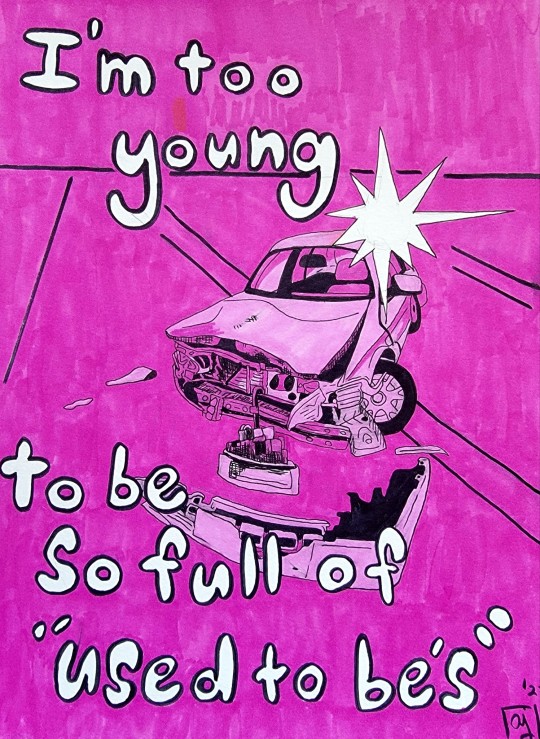
My baby's pretty like a car crash
#art#artists on tumblr#artwork#artistsupport#new artist#illustration#illustrator#traditional art#fine art#painter#mid youth crisis#early twenties#markers#drawing#traditional drawing#traditional illustration#my art#mental health
9 notes
·
View notes
Text
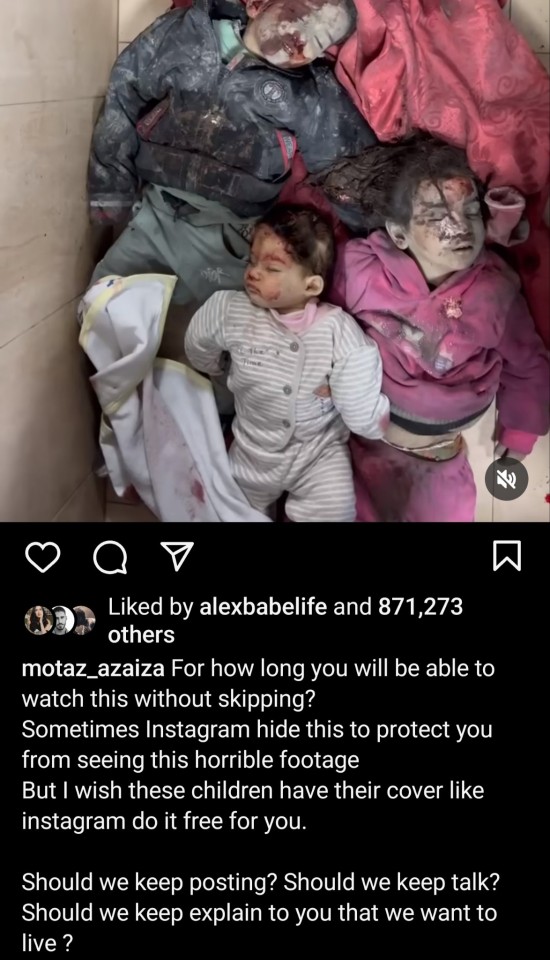
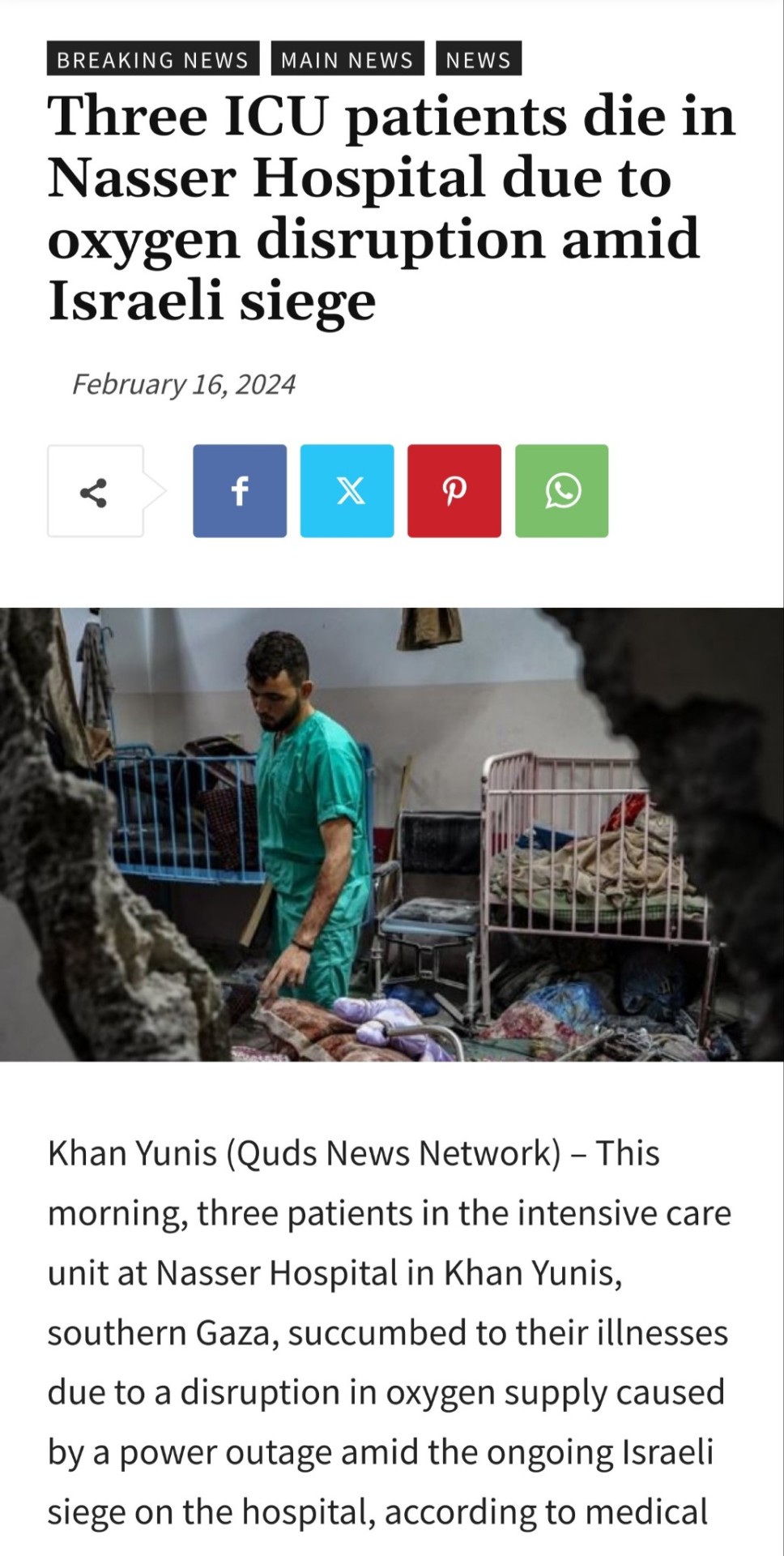
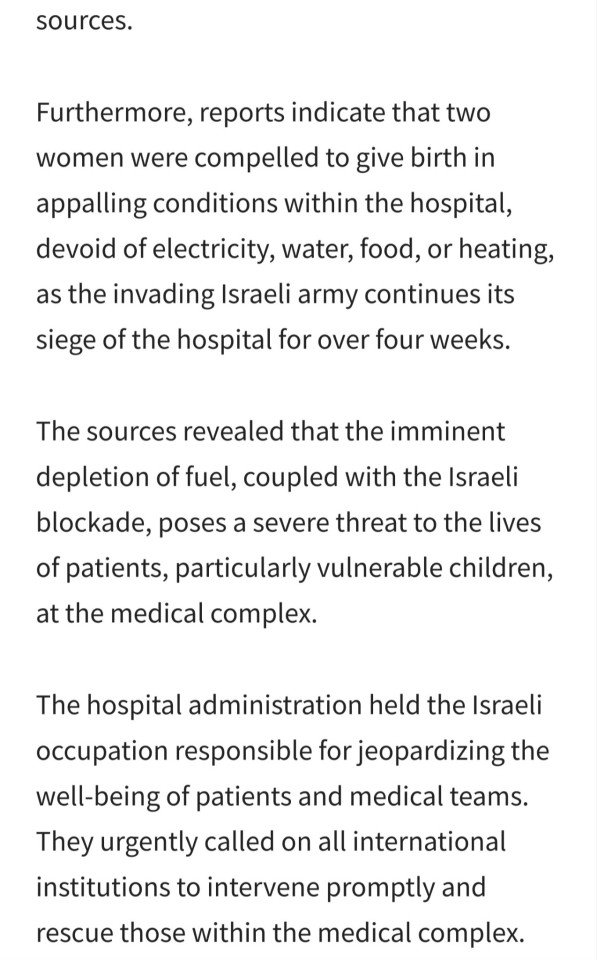
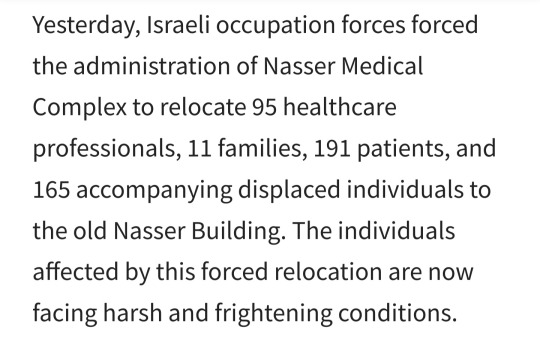
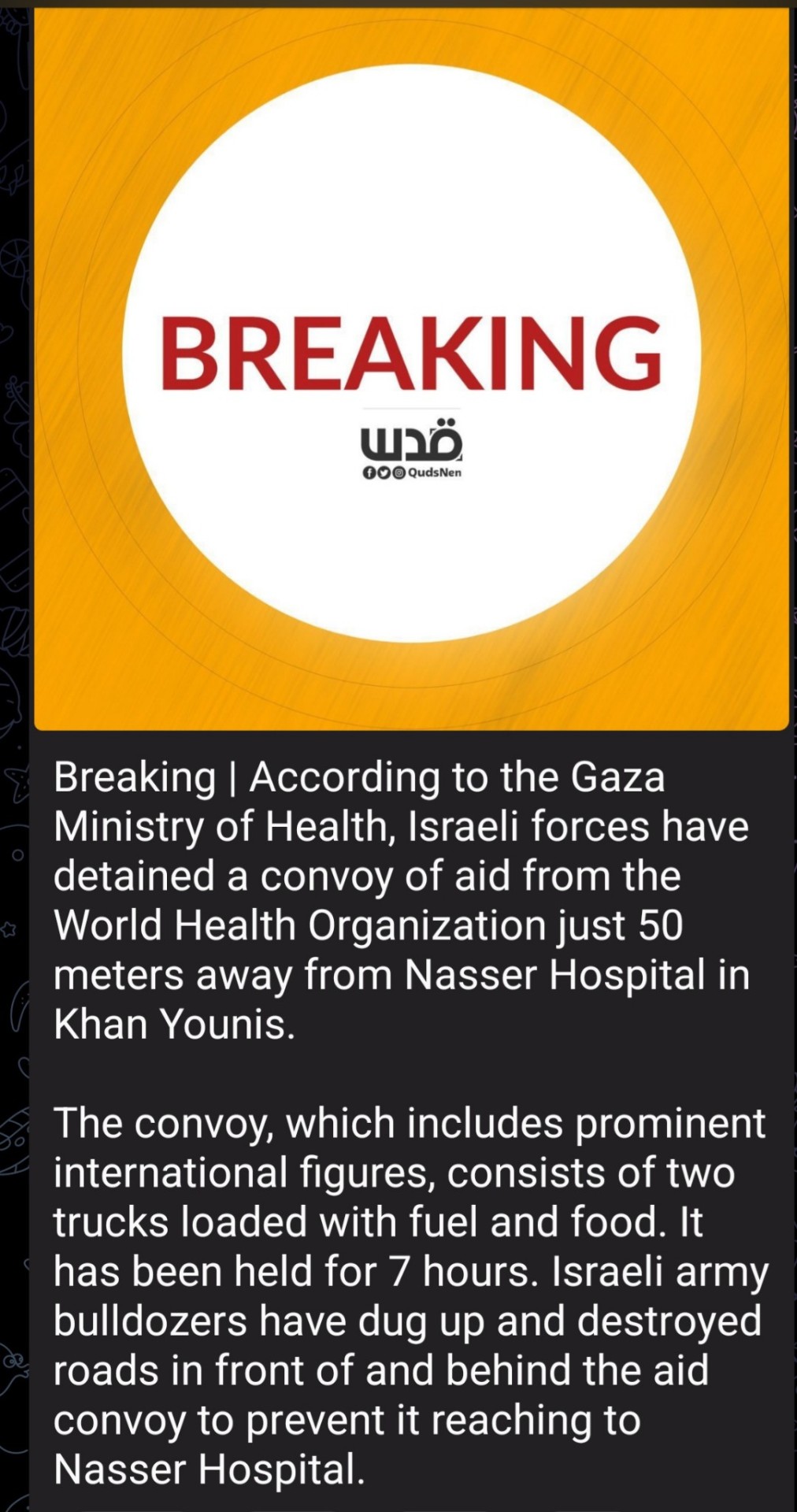
BY THE NEXT DAY, 2 MORE LIVES WERE LOST
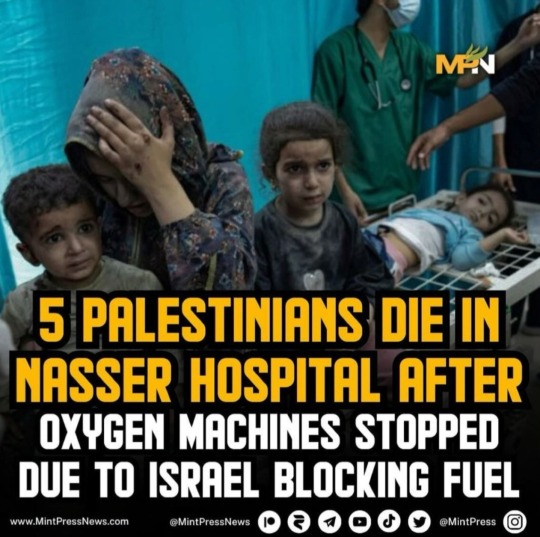
#nasser hospital#WHO#humanitarian crisis#there is no other word for this but genocide#stop weaponizing words to prevent debate#this was NEVER about Hamas#Israel has raised their children indoctrinating them to see Palestinians and all arabs really to be seen as subhuman#its easy to kill when you dont even view the victim as a human being#zionism is nazism for the 21st century#IOF is no different than the Hitler Youth of the 30s and 40s#apartheid#save palestine#ethnic cleansing#israel is an apartheid state#seek truth#free palestine 🇵🇸#genocide#illegal occupation#israel is committing genocide#israeli war crimes#israel is a terrorist state#never again means never again for ANYONE#lessons never learned#its not hyperbole to compare the actions of Israel and the IOF to those of the Nazis#same wording and propaganda#same brutal tactics and reducing their victims to subhuman animals#history will remember#spread awareness#stand with palestine#i see no humanity
6 notes
·
View notes
Text

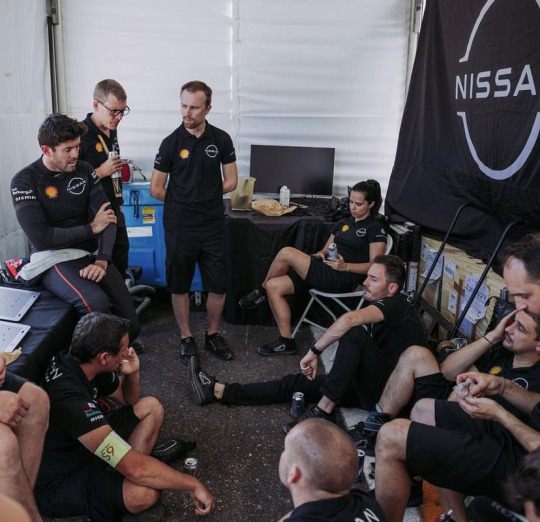

#second pic is crisis meeting#reminds me of youth match days when the coach tells them why their pitch time sucked and they just all sit there in silent suffering#norman nato#fe#formula e#portland eprix 2023
22 notes
·
View notes
Text
Today I (25) had a man (60's) tell me it was my generation who is in control of the government and this was after going off about how awful things are.
It's absurd. His generation are literally the people in charge, with Gen x following. That's how our shit system works. You can't even run for certain offices until you're 35-45+.
Sure, yeah, it's my fucking generation in control. It's my generation who's holding all of the offices! Duh! We want it to be shit! We want homeless people living on the streets and we LOVE having really small wages. Isn't it just fucking dandy how our military industrial complex is larger than the next 3 countries combined if you list them by money invested yearly, and/or personnel. /s
I unironically wanted to fucking slap the dude. As soon as he left I looked at my boss and just went "my generation isn't in control of shit."
Like, we have to wait for you all to die first. I wish we actually did have as much power as that dumbass thinks. At the very least we'd have people who actually know what it's like to be gen z. The impossible housing market, min wage not rising vs massive inflation, homelessness on the rise for Gen Z, especially queer youth and young adults.
I am one of those statistics. A nonbinary person who was homeless. The system is not built for us and we are not surviving, we are barely holding on.
The people who are in power are peeling our fingers off the ledge. It isn't our fault that we fall. It's theirs.
#boomers#homeless#homeless youth#gen z homeless#homeless crisis#capitalism in action#i fucking hate capitalism#customer service#gay#lgbt#queer#generation z#gen z
5 notes
·
View notes
Text
“We are prepared to do whatever it takes,” said Adah Crandall, 17, an organiser for the Sunrise Movement based in Portland, Oregon.
“The far right has waged this battle against school boards and against public education, and they put a lot of time and money into trying to do things like ban books and prevent us from learning the truth about the climate crisis,” said Crandall. “And all of these things, all of these things are happening while the climate crisis is raging outside of our windows.” ...
To prepare for the fight ahead, about 150 high schoolers from across the US gathered in Illinois to attend a summer camp where they honed their activism, learning advocacy and escalation tactics.
Later this week, hundreds of students will join Jamaal Bowman, a New York representative, and Ed Markey, the Massachusetts senator, in Washington DC, as the lawmakers reintroduce their Green New Deal for Public Schools Act. The legislation would provide funding to help schools expand and develop curricula, hire staff and retrofit campuses.
15 notes
·
View notes
Text
Unhoused Solidarity In Action
This is a non-exhaustive list of resources you might have access to, or know of, that can be used to aid unhoused community members directly. Many of these focus on direct mutual aid as individuals but can be helpful to consider when in community organizing settings.
- What do you (or someone you know) have access to, that you can provide to the community?
- Can they be accessed, used, or provided: regularly, occasionally, only in emergencies, weekly, daily, sporadically, consistently, etc.?
- Consider seasonal needs (winter coats don’t help us when it’s 90 degrees out!)
- Remember to practice active, informed consent with individuals and ask if these would be helpful! Don’t take it personally if your offer isn’t helpful to someone, it might help someone else.
- These should be realistic and not compromise your safety or well-being. Remember to prioritize safety over comfort.
Housing
- Consider your relationship with this person (generally, don’t offer complete strangers into your home)
- Location matters a lot. Unhoused people often need to be near “hubs”/cities, close to resources and systems of care.
- Some people can’t live in hotels, couch surf, or any of these options without losing their housing vouchers, and in some cases health insurance or other assistance programs. Legal definitions of homelessness (used by voucher programs) usually don’t include people living in hotels/motels, or couch surfing (including most of these options). Check with the individual to see if this might be helpful.
Extra bedrooms
Campers, trailers
Couches
Apartments
Land/yards to camp on, park at, etc.
Donate funds or points for a hotel room
Shelters
Floor space
Safe parking lots to sleep in your car in (sleeping in your car is considered legal homelessness in most places)
Time
- Emotional capacity and minimizing the risk of burnout are important here especially
Do outreach with a community org
File for grants
Provide education materials
Share knowledge regarding resources
Emotional support - build genuine connections with your local unhoused neighbors
Reach out to companies for donations
Create or add to lists of resources, open bathrooms, etc.
Transportation
- One of the biggest barriers to accessing existing resources is transportation (also mailing addresses, internet access, and active phone service)
Personal car, ride-sharing/carpooling
Bus tickets/passes
Old/not frequently used bikes
Taxi services/vouchers
Uber/Lift gift cards
Carpooling
Coordinate rides for people
Food
- A lot of unhoused people prefer “comfort foods” to “health foods”
- Ask about dietary restrictions, the cooking ability of the unhoused person, the cooking equipment, etc.
- Soft foods are frequently more accessible to us as dental issues are very common
- 100$ in fast food is significantly less than 100$ in homemade food
Can cook hot meals
Can pay for meals
Knows someone (person, business) who can supply food
Inviting people over for a meal
Gifting food (be sure to be considerate of dietary restrictions, cooking ability, equipment needed to cook, etc.)
Have a community dunkin gift card
Make or add to a fruit tree map (fallingfruit.org, community gardens, federal university campuses)
Money
- Money should be freely given, with no strings attached
- Ask what form works best for them— cash apps/virtual, physical cash, gift cards, quarters, etc.
It is best to provide cash donations directly to impacted individuals (or organizations) with no strings attached
Provide relevant, local chain store gift cards (Grocery stores, coffee shops, restaurants)
Coordinate fundraisers
Apply for grants
Supplies
- Ask individuals what they need most!
Purchase and donate supplies directly to individuals or organizations
Reach out to businesses
Donate old phones or computers
Add someone to your family phone plan
Donate professional clothes for interviews
Donate an outfit you would actually wear
Talents, Trades, Skills
Your hobbies might be helpful! Crochet is extremely trendy right now (easy to learn, you could make hats/scarves for community members)!
Professional ties/experience
Examples: You’re a cosmetologist who can do free haircuts for an hour each week, or you’re a graphic designer who can create a website for an organization for free, or you’re a nurse who can provide wound care to encampments
Community gardens
Connect with and partner with non-profits or community-based organizations in your area (or help start one if there’s none!)
Allow people to use you as a reference for job interviews
Bathrooms
- Not just toilets, but showers and mirrors are important too
Ask businesses to pledge to have open, public, accessible, and free restrooms
Your personal restroom
Make a list of local public restrooms
Free gym memberships or add someone to a gym plan
Services
- In order to access most services, you need most, if not all, of the following: transportation, identification, important paperwork, printing/faxing access, mailing addresses, internet access, active phone service, free time during business hours, and emotional and mental ability (and capacity) to complete everything required (forms, applications, phone calls, interviews, annual reviews, verifications) in a timely manner (usually on a strict deadline)
Case management experience you can volunteer
Peer support for service navigation (great option for people with prior lived experience)
Advocacy within services
Offer to provide a P.O. box or use your address to receive mail
Housing skills
Allow someone to use your library card for books, computers, the internet, etc. (most libraries won’t allow unhoused people to get a library card)
Volunteer at a shelter
Allow someone to use your home wifi, printer, phone number, mailbox, email, etc.
Fundraising
- If you can’t donate your own personal funds, fundraising is a great way to help out
Community mutual aid asks (in person or online)
Art walks
Skate competition
Concerts
Tip jar
Gift basket raffle
Clothing and food drive
Game tourney
Live streams
Start a GoFundMe for individuals/orgs
I strongly encourage you to look over the matching slides I created for this workshop: https://docs.google.com/presentation/d/1VDngImsMByUFmKX611zAJ43a0UcYIfMBxrbh_g1IJvc/edit
As a disclaimer: I have been homeless/unhoused for over half of my life. My experiences of homelessness have included while being a infant, toddler, young child, preteen, teenager, and young adult. I am 24 years old. My most recent experience of being unhoused was last year, and I am currently precariously housed (meaning: at high risk of losing housing again). My experiences of homelessness have included sleeping outside in a tent, sleeping on park benches and under freeways, walking around all night to avoid hypothermia and freezing to death (something that has happened to several of my friends), couch surfing, sleeping in cars, squatting, sleeping in motels, living in a shelter, and institutionalized. I have been homeless with family a few times during early childhood and again when I was 15. All of my other experiences of homelessness have been on my own starting at age 9 or 10, and the last time I lived with a parent I was 16. I have been homeless in both rural and urban areas. I have been homeless in New England/Northeast United States as well as the Pacific Northwest.
In addition to this, I have many contributing factors to my experience, including being disabled, a person of color, trans, queer, a survivor of child abuse and CSA, being trafficked, and a drug user and a SWer, amongst other marginalized experiences.
That being said: my experience of being unhoused/homeless is not the universal experience. While I know many people of all different demographics who I’ve met on the streets, I cannot speak to every single person’s experiences. I especially cannot speak to experiences outside of the United States, aside from what I hear secondhand.
This is meant to serve as a general guide to accompany a workshop I created, and might not be helpful for everyone. If it’s not helpful, I hope it inspires others to offer creative solutions. I’m always working on expanding this list. Thank you for reading.
#chronically couchbound#guides#info#homelessness#unhoused#homeless#houseless#homeless care packs#mutual aid#community organizing#community outreach#houselessness#homeless trans youth#support swers#trauma survivor#houseism#housing instability#affordable housing#housing crisis#support unhoused people#support homeless people#disability#disabled#intersectional social justice#intersectionality#praxis#leftist praxis#solidarity#trans solidarity#queer solidarity
51 notes
·
View notes
Text

kill yourself
#the level of mathematics and literature taught in 16+ education is incredibly specialised and will not help those who already struggle with#those subjects. forcing kids into them will only exacerbate the youth mental health crisis.#why doesn't he fund primary schools where foundation-level literacy and numeracy is taught? is he stupid?
8 notes
·
View notes
Text
Tatsumi in !! Music: Aww, look at these kids. Oh, to be young again
Me: My brother in Christ, you are 18
Nagisa and Sakuma in Road to Show: Gotta be adults and let the kids enjoy themselves while we grown ups take care of the work
Me: Guys, you haven't even graduated from university
Keito to Kiryu: Gotta take care of our child Souma
Me: ????? He's just a grade younger than you both???
Knights seniors: Must protect our adorable king from the horrors of the world
Me: HE'S LIKE 3 YEARS YOUNGER THAN THE OLDEST OF YOU AND HIS FAMILY HAS ASSASSINS
Kiryu @ Kanata in the anime: As Ryuseitai's mom, you should help out its dad with the kids
Me: "Mom" and "Dad" are still HIGH SCHOOLERS
#the enstars experience is being reminded that everyone but 2.5 people are currently under 20#and then reading about them Experiencing the horrors of the entertainment industry#which granted...probably would make up kids grow up faster. especially with all the traumatic things they went through BEFORE school#but also like. the biggest age gap is probably between aira (15/16) and himeru (???)#or with the current knowledge aira and rinne (20/21 <-literally the only over 20 yr old after 19/20 rei)#and thats like 6 years which IS pretty big so he does get rights to call them all children#but i stand by me having a crisis over high school students saying theyre adults compared to guys 1 or 2 years younger#ignoring the fact that i do literally the same except im mostly joking and i think theyre all dead serious#enstars#ensemble stars#stuff i say#fandom spamdom#actually to be fair being a teen in high school IS thinking that this guy a grade younger than you is basically a fresh-faced child#its more when they talk about it as if their youth is fading when 94% of the cast are still in their teen years#like boys i know youre in the idol industry but come on
10 notes
·
View notes